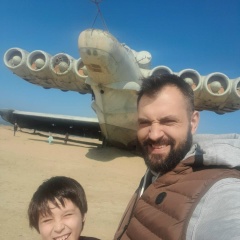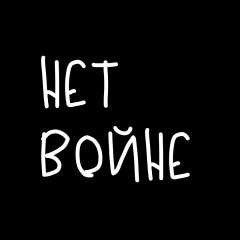Обвинение родителей?
⠀
Загнобить родителей, повесить на них чувство вины, переложить ответственность за все свои переживания и неудачи в настоящем — разве в этом цель работы с психологом? Конечно, нет! Хоть именно так и может показаться на первый взгляд того человека, кто никогда не работал с психологом.
⠀
После моего поста, где я говорю о типах матери, вы много пишете о том, что не надо винить родителей, что как есть, так есть. Кто-то пишет наоборот о том, что стало понятнее, откуда есть сложности, и понятнее, что с ними делать. Давайте разберёмся.
⠀
Сейчас стали части информации о том, что во время работы психолог помогает увидеть, откуда идут травмы, проистекают те или иные модели поведения взрослого человека. И да, большинство из них начинаются в детстве.
⠀
Означает ли это, что психологи предлагают переложить ответственность за свою неудавшуюся жизнь на плечи родителей? Обвинить? Загнобить?Нет.
⠀
Для чего мы разбираем ситуации из детства? Для чего подробно обсуждаем их и даём поддержку, если там, в детстве, было трудно? Для того, чтобы человек увидел, как устроены его механизмы психологических реакций, понял, что они заложены кем-то, а значит, не все они приклеены к нему и неизменны. Увидев это, человек может поменять неработающие схемы на те, которые выберет, работающие и помогающие ему сейчас. У него появится выбор.
⠀
Психологи используют разные техники работы с детскими травмами. Но главный принцип:
⠀
1. Увидеть истоки модели поведения, используемой в настоящем
⠀
2. Осознать и признать, что да, то, как с ним, ребёнком, поступали, было больно
⠀
3. Получить поддержку, легализацию и принятие чувств, таким образом постепенно выстроив свою внутреннюю взрослую часть
⠀
4. Увидеть уже взрослыми глазами, почему родители так делали. Чаще всего окажется, что они действовали из огромной любви, но из тех обстоятельств, своих знаний (и незнаний), требований того времени, бессилия
⠀
5. Отплакать, простить и отпустить.
⠀
Так боль, обида, гнев ребёнка трансформируются в понимание, принятие, благодарность взрослого человека родителям.
Не бывает идеальных родителей. Не бывает совсем не травмированных детей. Бывают жизнь и отношения. Родители всегда действуют из любви, даже когда делают больно.
Просто любовь у каждого связана со своим: с болью, с отвержением, с принятием, восхищением, жёсткостью, взаимностью, с лаской и заботой и другими оттенками человеческого бытия.
Напишите, как вам эта тема? Что вызывает внутри: согласие или сопротивление?
Татьяна Загоровская, психолог без обвинений♥️
⠀
Загнобить родителей, повесить на них чувство вины, переложить ответственность за все свои переживания и неудачи в настоящем — разве в этом цель работы с психологом? Конечно, нет! Хоть именно так и может показаться на первый взгляд того человека, кто никогда не работал с психологом.
⠀
После моего поста, где я говорю о типах матери, вы много пишете о том, что не надо винить родителей, что как есть, так есть. Кто-то пишет наоборот о том, что стало понятнее, откуда есть сложности, и понятнее, что с ними делать. Давайте разберёмся.
⠀
Сейчас стали части информации о том, что во время работы психолог помогает увидеть, откуда идут травмы, проистекают те или иные модели поведения взрослого человека. И да, большинство из них начинаются в детстве.
⠀
Означает ли это, что психологи предлагают переложить ответственность за свою неудавшуюся жизнь на плечи родителей? Обвинить? Загнобить?Нет.
⠀
Для чего мы разбираем ситуации из детства? Для чего подробно обсуждаем их и даём поддержку, если там, в детстве, было трудно? Для того, чтобы человек увидел, как устроены его механизмы психологических реакций, понял, что они заложены кем-то, а значит, не все они приклеены к нему и неизменны. Увидев это, человек может поменять неработающие схемы на те, которые выберет, работающие и помогающие ему сейчас. У него появится выбор.
⠀
Психологи используют разные техники работы с детскими травмами. Но главный принцип:
⠀
1. Увидеть истоки модели поведения, используемой в настоящем
⠀
2. Осознать и признать, что да, то, как с ним, ребёнком, поступали, было больно
⠀
3. Получить поддержку, легализацию и принятие чувств, таким образом постепенно выстроив свою внутреннюю взрослую часть
⠀
4. Увидеть уже взрослыми глазами, почему родители так делали. Чаще всего окажется, что они действовали из огромной любви, но из тех обстоятельств, своих знаний (и незнаний), требований того времени, бессилия
⠀
5. Отплакать, простить и отпустить.
⠀
Так боль, обида, гнев ребёнка трансформируются в понимание, принятие, благодарность взрослого человека родителям.
Не бывает идеальных родителей. Не бывает совсем не травмированных детей. Бывают жизнь и отношения. Родители всегда действуют из любви, даже когда делают больно.
Просто любовь у каждого связана со своим: с болью, с отвержением, с принятием, восхищением, жёсткостью, взаимностью, с лаской и заботой и другими оттенками человеческого бытия.
Напишите, как вам эта тема? Что вызывает внутри: согласие или сопротивление?
Татьяна Загоровская, психолог без обвинений♥️
Blaming Parents?
⠀
To slander parents, hang guilty feelings on them, shift responsibility for all their experiences and failures in the present - is this the purpose of working with a psychologist? Of course not! Although it may seem so at first glance, that person who has never worked with a psychologist.
⠀
After my post, where I talk about the types of mother, you write a lot about the fact that you don’t have to blame your parents for what is, is. Someone writes on the contrary about what has become clearer, where there are difficulties, and more clear what to do with them. Let's figure it out.
⠀
Now there are pieces of information that during the work the psychologist helps to see where the injuries come from, certain behaviors of an adult arise. And yes, most of them begin in childhood.
⠀
Does this mean that psychologists suggest shifting responsibility for their failed lives onto the shoulders of their parents? To blame? Gobble up? No.
⠀
Why do we analyze situations from childhood? Why do we discuss them in detail and give support if it was difficult there in childhood? In order for a person to see how his mechanisms of psychological reactions are structured, I realized that they were laid by someone, which means that not all of them are glued to it and are unchanged. Seeing this, a person can change non-working schemes for those that he chooses, working and helping him now. He will have a choice.
⠀
Psychologists use different techniques for dealing with childhood injuries. But the main principle:
⠀
1. See the origins of the behavior model used in the present
⠀
2. To realize and admit that yes, the way they acted with him, the child, was painful
⠀
3. Get support, legalization and acceptance of feelings, thus gradually building your inner adult part
⠀
4. See with adult eyes why parents did this. Most often it turns out that they acted out of great love, but from those circumstances, their knowledge (and ignorance), the requirements of that time, powerlessness
⠀
5. Cry, forgive and let go.
⠀
So the pain, resentment, anger of a child are transformed into understanding, acceptance, gratitude of an adult to parents.
There are no perfect parents. There are no completely uninjured children. There are life and relationships. Parents always act out of love, even when they hurt.
It’s just that everyone’s love is connected with their own: with pain, with rejection, with acceptance, admiration, stiffness, reciprocity, with affection and care and other shades of human being.
Write, how do you like this topic? What causes inside: consent or resistance?
Tatyana Zagorovskaya, psychologist without charges ♥ ️
⠀
To slander parents, hang guilty feelings on them, shift responsibility for all their experiences and failures in the present - is this the purpose of working with a psychologist? Of course not! Although it may seem so at first glance, that person who has never worked with a psychologist.
⠀
After my post, where I talk about the types of mother, you write a lot about the fact that you don’t have to blame your parents for what is, is. Someone writes on the contrary about what has become clearer, where there are difficulties, and more clear what to do with them. Let's figure it out.
⠀
Now there are pieces of information that during the work the psychologist helps to see where the injuries come from, certain behaviors of an adult arise. And yes, most of them begin in childhood.
⠀
Does this mean that psychologists suggest shifting responsibility for their failed lives onto the shoulders of their parents? To blame? Gobble up? No.
⠀
Why do we analyze situations from childhood? Why do we discuss them in detail and give support if it was difficult there in childhood? In order for a person to see how his mechanisms of psychological reactions are structured, I realized that they were laid by someone, which means that not all of them are glued to it and are unchanged. Seeing this, a person can change non-working schemes for those that he chooses, working and helping him now. He will have a choice.
⠀
Psychologists use different techniques for dealing with childhood injuries. But the main principle:
⠀
1. See the origins of the behavior model used in the present
⠀
2. To realize and admit that yes, the way they acted with him, the child, was painful
⠀
3. Get support, legalization and acceptance of feelings, thus gradually building your inner adult part
⠀
4. See with adult eyes why parents did this. Most often it turns out that they acted out of great love, but from those circumstances, their knowledge (and ignorance), the requirements of that time, powerlessness
⠀
5. Cry, forgive and let go.
⠀
So the pain, resentment, anger of a child are transformed into understanding, acceptance, gratitude of an adult to parents.
There are no perfect parents. There are no completely uninjured children. There are life and relationships. Parents always act out of love, even when they hurt.
It’s just that everyone’s love is connected with their own: with pain, with rejection, with acceptance, admiration, stiffness, reciprocity, with affection and care and other shades of human being.
Write, how do you like this topic? What causes inside: consent or resistance?
Tatyana Zagorovskaya, psychologist without charges ♥ ️

У записи 23 лайков,
0 репостов,
530 просмотров.
0 репостов,
530 просмотров.
Эту запись оставил(а) на своей стене Татьяна Загоровская











































